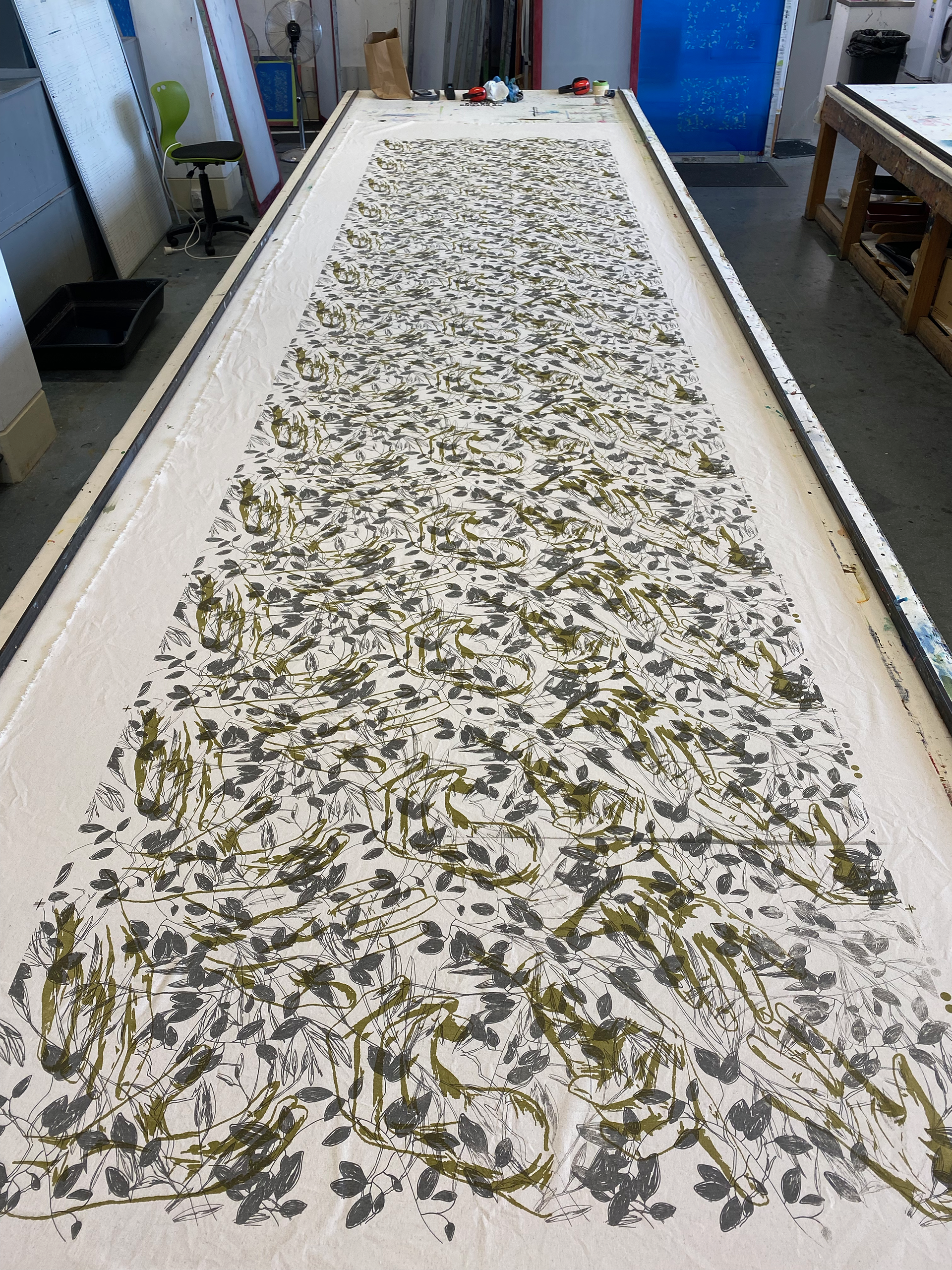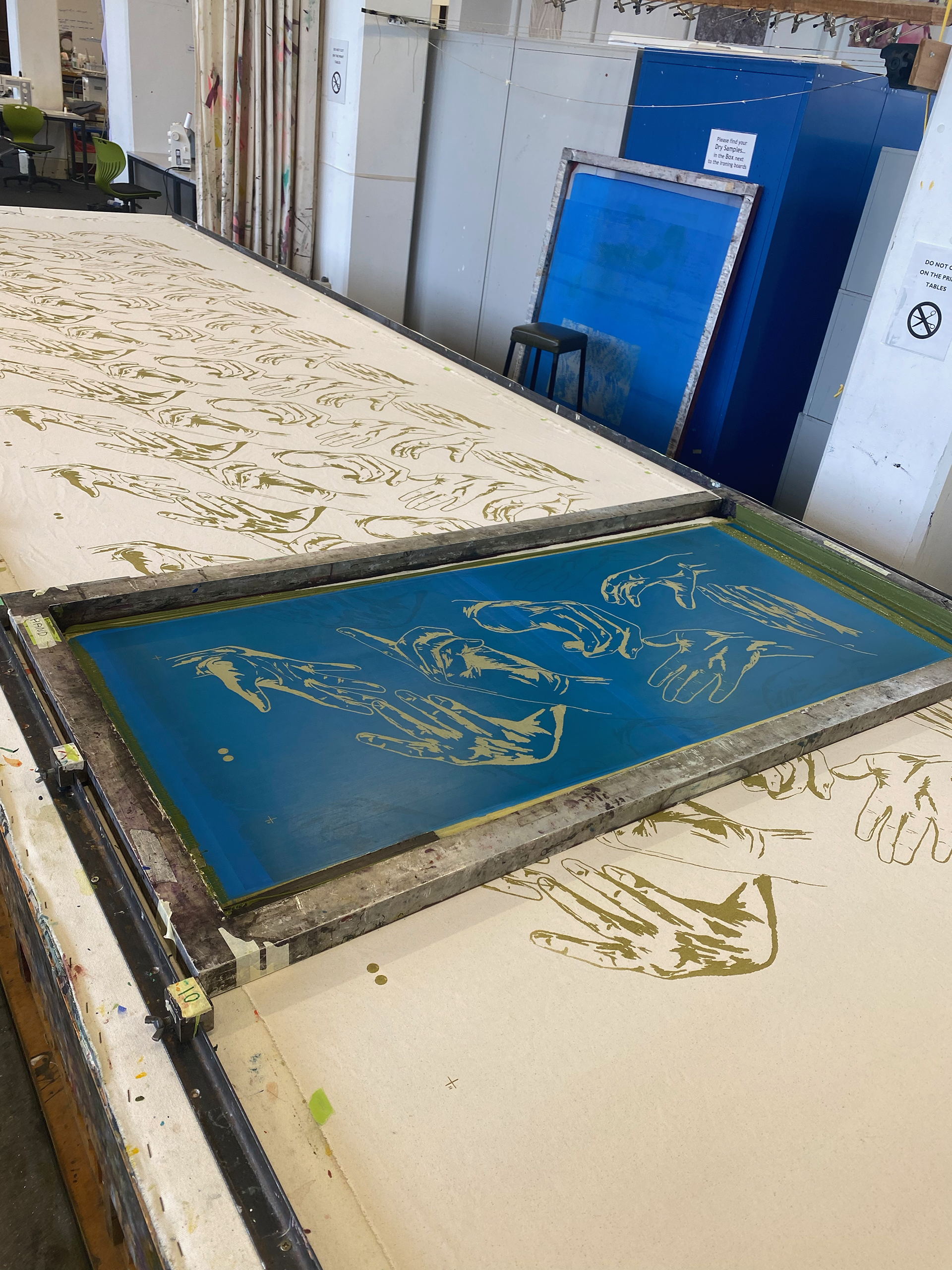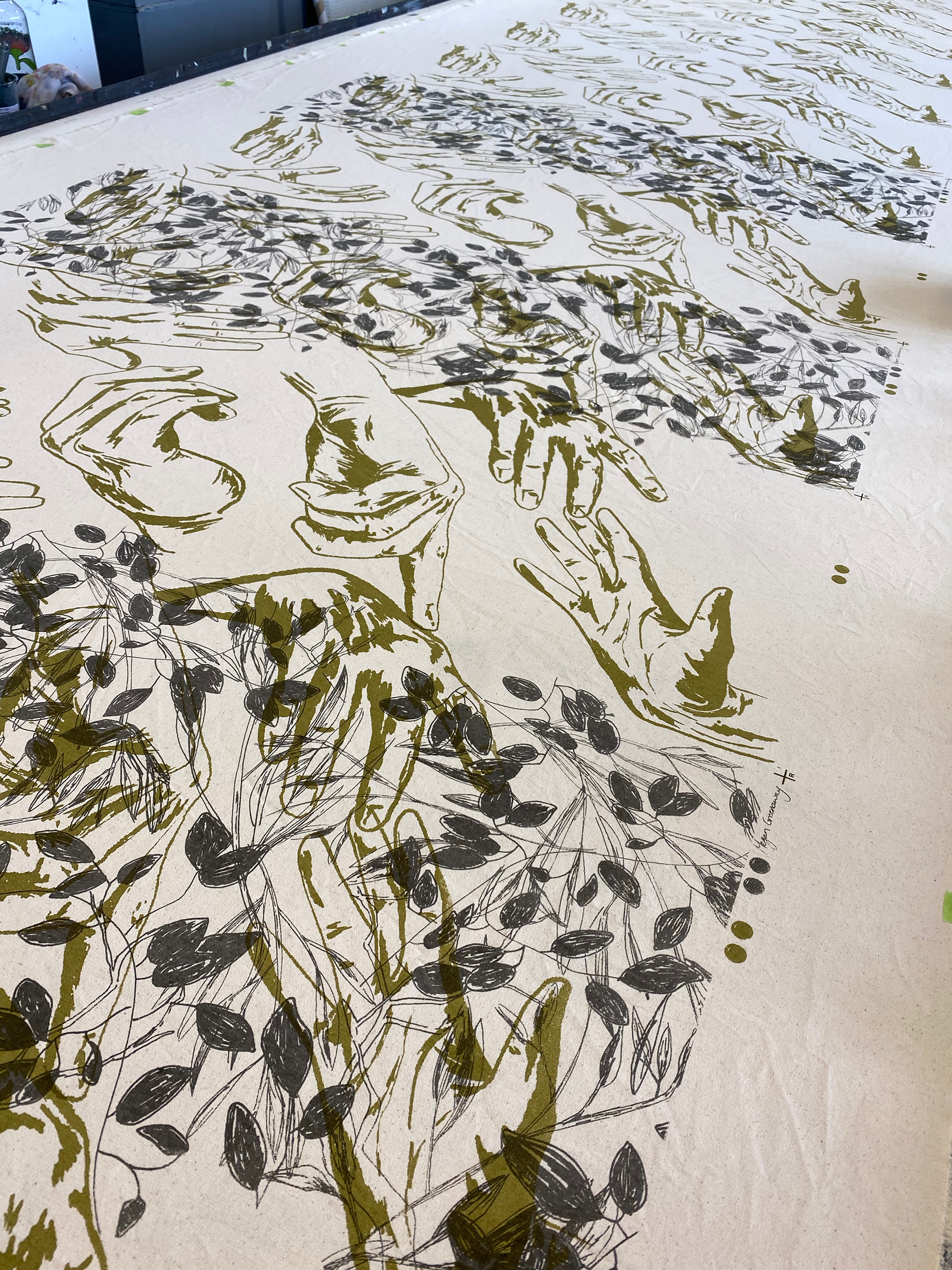“To become naturalized is to live as if your children’s future matters, to take care of the land as if our lives and the lives of all our relatives depend on it. Because they do.”
- Robin Wall Kimmerer, Braiding Sweetgrass: Indigenous Wisdom, Scientific Knowledge and the Teachings of Plants



As a textile designer and consumer within Aotearoa, the scale of the environmental impact of the textile industry is anxiety inducing and has made me question what we even mean when we say a product or a piece of clothing is sustainable, when the capitalist system in which we operate is inherently unsustainable.
By engaging with written works by indigenous peoples, not only has this made me further reassess what I consume, but also consider the more direct, physical relationship between my body and the land. In a way, learning that the existence of mutually beneficial relationships between humans and the earth exist within indigenous ways of knowing is comforting. However, it’s important that this indigenous knowledge is not taken for granted and
appropriated to fit into our current colonial, capitalist model of society. Instead, we can seek to decolonise our relationship to the land.
appropriated to fit into our current colonial, capitalist model of society. Instead, we can seek to decolonise our relationship to the land.
.I have used this project as a way to read, learn, and reassess my own relationship to the earth and have created a design that signifies this shift from considering sustainability as a broader, intangible concept, to a more direct physical human to plant level of contact. One that is easier to digest, but often feels lost in the western world.
The two-layered design itself literally embodies this relationship through the depiction of the human hand and the plants growing wild and meandering, tangled over the surface of the print. The placement of the hands in the background layer of the print is also intentional as a nod to our impact and physical connection to the natural world, but as one that isn’t overpowering. Referencing what Robin Wall Kimmerer talks about in her book Braiding Sweetgrass as a gift giving, reciprocal relationship between human and land; the hands only taking what they need and not attempting to tame plant life or minimise the environment to an assortment of resources for us as humans to take.